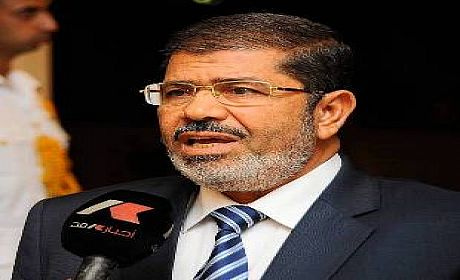A Symbolic yet Important Meeting

Mohammad Morsi, the Egyptian president, in a move indicative of the start of a new season in Cairo diplomacy, met the Iranian vice-president.
The meeting between Morsi and Baghaee, at a time when pressures over the Iranian nuclear program and relations between Tehran and Damascus have been intensified, is a diplomatic victory for Iran. This meeting takes place as the current Egyptian president attempts to change a pro-American image of Egypt, a legacy of the deposed president Mubarak.
Although the meeting in Cairo has had no specific result, it is considered as a symbolic meeting. Since the victory of the Islamic Revolution in 1979 and following the peace treaty between Egypt and Israel, official relations between Iran and Egypt have been suspended. During recent years, Mubarak had rejected Iran's efforts to restart full diplomatic relations, however, dialogues continued between officials of the two countries at a low level.
According to the Los Angeles Times, Baghaee's visit took place at a time when Tehran and Cairo are the target of Israeli threats. On one hand, Tel Aviv raises the option of using military means against Iranian nuclear activities and, on the other hand, it has intensified the pressure on Egypt so as to prevent military officers from entering Israel.
The LA Times continues that there is little chance that, in the near future, Egypt, with its Sunni leadership, and Shiite Iran will be able to create great changes in their relations. The Egyptian military, which receives an annual 1.3 billion dollar budget from the US, has strong influence over the security and foreign policy of this country. On the other hand, Morsi has announced that he respects international treaties including the peace treaty with Israel. As a conservative Islamist and a candidate of the Muslim Brotherhood for the presidency, Morsi, in his relations with Iran, has noted the relations with Sunni Arabs in the Persian Gulf. He does not want to create dissatisfaction among his Arab friends. While Saudi Arabia was a close ally of Mubarak and used to regard the Muslim Brotherhood suspiciously, President Morsi selected Riyadh as his first international visit. In return, Saudi Arabia provided billions of dollars of aid to Egypt in facing shortages of electricity, water and currency reserves.
An analyst at the Ahram Center for Strategic and Political Studies says that, in the event that Egypt improves its relations with Iran, the US will not be happy and this is the case with Arab countries of the Persian Gulf area. He says that Morsi does not want to face his strategic allies, particularly when he has received assistance and financial supports from them.
This is while Iran described Morsi's victory in Egypt's elections as part of the Islamic awakening. Morsi became the president of Egypt when the crisis in Syria, Iran's closest ally in the region, had expanded and international sanctions against Iran had also been intensified. Experts say that while the Muslim Brotherhood in Egypt intends to strengthen their relations with Iran, some clergies of this country, while pointing out the history of relations between the Shiites and Sunnis, do not welcome closer relations with Tehran.
Baghaee's mission, who arrived in Egypt on Wednesday, was to invite Morsi to attend the NAM Summit in Tehran which will be held early next month. In June, Fars news agency, while quoting Morsi, stated that he is willing to strengthen relations with Iran. But Morsi denied any interview with Fars news agency. At the present time, Morsi's office has also declared that he is studying Iran's invitation. But it is still not clear whether Morsi himself will attend this summit or whether he will dispatch his representative to Tehran.

